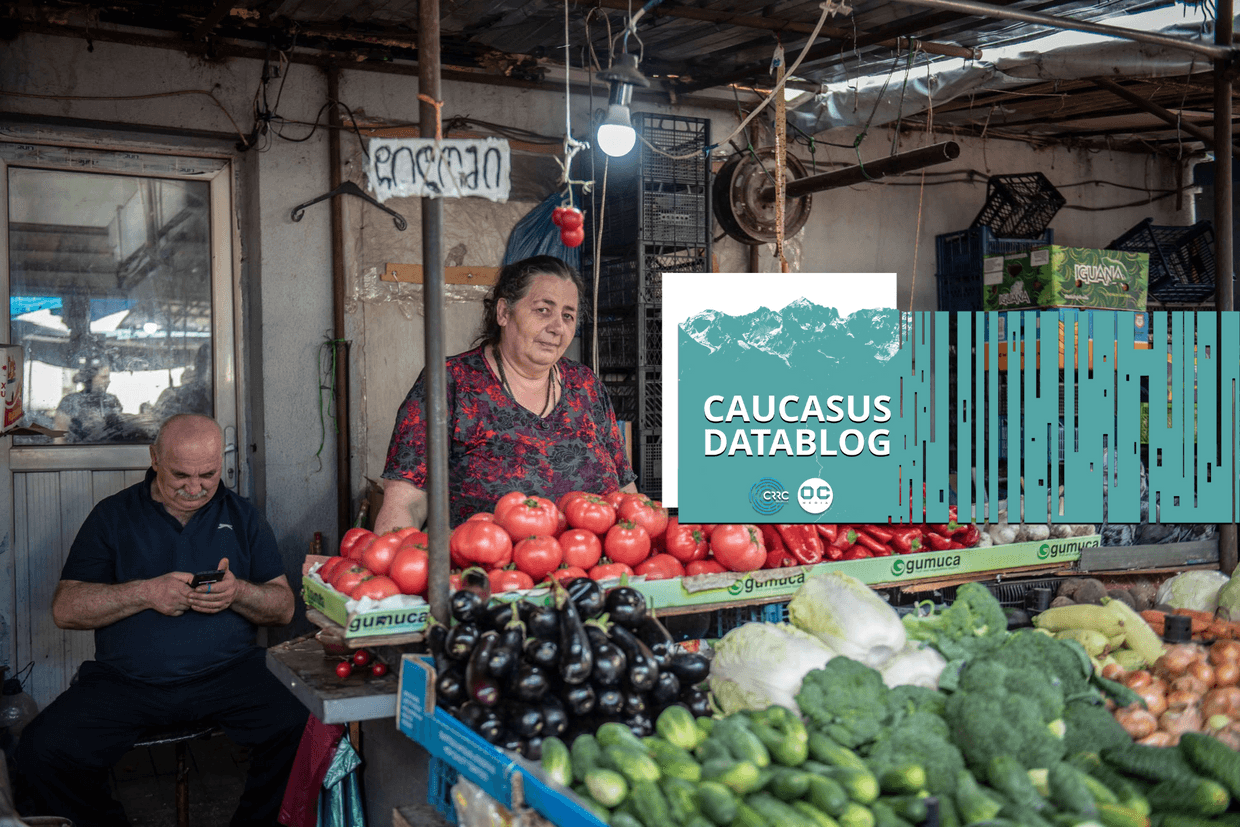
Datablog | Trust in NGOs in Georgia has grown increasingly polarised
Georgian Dream supporters are increasingly likely to distrust NGOs while those who trust the opposition have become more trusting.

Georgian Dream supporters are increasingly likely to distrust NGOs while those who trust the opposition have become more trusting.

Only 51% of Georgians believed it was justifiable for men to have a sexual relationship before marriage, compared to 30% believing the same for women.

Though a decrease from 70% in 2015, the amount of Georgians experiencing food insecurity remains high.

Despite significant negative public sentiment towards Russia’s relations to Georgia, a 2023 CRRC survey found that there were mixed opinions on Georgia’s economic ties to Russia. In CRRC Georgia’s 2021 Caucasus Barometer Survey, 66% of Georgians surveyed identified Russia as the country’s main enemy. However, NDI and CRRC Georgia’s October 2023 survey data found that those surveyed had a variety of opinions on Georgia’s economic relations with Russia. Georgian support for deepening economi

A CRRC Georgia survey found most Georgian respondents use more than one social media platform, with younger people and people living in cities using a greater variety of platforms. According to Georgia’s National Statistics Office, 96% of Georgia’s internet users use social media. While social media’s popularity in Georgia is clear, which platforms are most used and who uses the most platforms? According to the 2021 Caucasus Barometer survey, 68% of Georgians use the internet daily. The mo

A CRRC analysis of Georgian social media use has found that while Facebook remains the most popular social network in the country, almost half of young Georgians are on TikTok, with men and members of ethnic minority groups more likely to use the app. Despite being a relative newcomer to the social media market, the popularity of TikTok, the short-form video sharing platform, is rapidly growing as a tool for accessing and engaging in entertainment and niche communities, especially among young